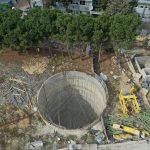Overview of Precision Agriculture Technologies
Precision agriculture harnesses the power of technology to increase farming efficiency and crop yields. This modern approach relies on GPS, sensors, and drones to gather data about the fields. But what exactly is precision agriculture? It’s a farming management concept where data collection is pivotal for optimizing field-level management regarding crop production.
Key Technologies in Use
- GPS Technology: Global Positioning Systems are essential in precision agriculture. They enable farmers to closely monitor field variability and manage land precisely.
- Sensors: These devices collect real-time data on the environment and soil conditions. They provide insights that allow for timely interventions, ensuring the optimal health of crops.
- Drones: With their ability to cover large areas rapidly, drones offer aerial imagery that helps in assessing crop conditions and planning farming activities.
Importance of Data Analysis
The significance of data analysis in precision agriculture cannot be overstated. It converts raw data into actionable insights that guide critical farming decisions. This analysis helps farmers optimize input use, enhance yields, and ultimately secure more sustainable farming operations. By using precision agriculture, farmers can increase farming efficiency and crop yields, thereby securing a more sustainable agricultural future.
Also to discover : Enhancing security: can ai-driven cctv cameras reduce crime in high-risk areas?
Case Studies of Successful Implementation in the UK
Precision agriculture has marked a revolutionary change in UK farming practices, offering insightful case studies to exemplify its potential. One such example involves a UK farm leveraging drones to monitor crop health effectively. By capturing high-resolution aerial images, farmers can identify areas needing attention, enabling timely interventions and improved crop yields. This technology adoption has not only enhanced productivity but also led to a significant increase in farming efficiency.
In another remarkable case, a farm implemented soil sensors for optimized irrigation management. These sensors provide real-time data on soil moisture levels, allowing for precise water application. As a result, water usage decreased while maintaining, and in some instances, boosting yield improvement.
Also to read : How to start a reaction channel: tips for success on youtube
The success of precision agriculture methods in the UK is reflected in metrics such as yield increases and resource savings. Farms adopting these technologies report substantial benefits, including reduced input costs and higher profitability. This trend highlights the transformation in traditional farming methods, underlining the importance of advanced technology in agriculture. The continuous documentation of these success stories contributes to the broader understanding and adoption of precision agriculture within the region.
Practical Methods for Enhancing Crop Yields
Improving crop yields is a primary focus for modern farmers, and precision agriculture offers viable methods to achieve this. By adopting targeted farming methods, growers can enhance productivity and sustainability.
Soil Management Techniques
Maintaining soil health is vital for yield improvement. Undertaking comprehensive soil quality assessments allows farmers to understand nutrient deficiencies and other issues. Precision soil mapping can guide the application of soil amendments, ensuring that each area receives what it specifically needs. Moreover, implementing strategies like crop rotation and cover cropping can enhance soil fertility and structure, leading to more efficient farming.
Crop Monitoring Tools
Advanced tools for crop monitoring facilitate timely assessment of plant health. Remote sensing and imagery, often captured via drones, identify issues before they escalate. Integrating weather data allows for effective crop management, enabling farmers to anticipate and mitigate climate impacts. Furthermore, using mobile apps aids in real-time data collection, making farming methods more responsive and data-driven.
Irrigation Technologies
Irrigation plays a critical role in crop success. Variable rate irrigation systems adjust water supply according to specific field conditions, optimizing resource use. The implementation of moisture sensors provides data-driven irrigation strategies, conserving water and boosting yield. Through precision irrigation, farmers achieve significant water savings and promote sustainable resource management.
Benefits of Adopting Precision Agriculture
Precision agriculture offers remarkable advantages that significantly impact farming efficiency, economic benefits, and environmental sustainability. By meticulously applying farming precision, resources such as water, fertilizers, and seeds are utilized more effectively, reducing unnecessary waste and enhancing farming efficiency. This precise approach leads to resource use optimisation, allowing farmers to tailor their efforts to the exact needs of their crops.
The economic impact is highly promising. Farmers who adopt these advanced methods often witness increased profitability through optimized yields, as data-driven decisions help maximize crop production. Precision agriculture not only boosts productivity but also ensures yield security, providing farmers with the confidence that their investments will likely result in desirable outputs.
Environmental sustainability is another significant benefit. By minimizing resource usage, precision agriculture contributes to a lower carbon footprint and environmental impact. This integration of technology into farming practices supports sustainable farming as it aligns with eco-friendly objectives. As more farmers transition to precision agriculture, the collective benefits amplify, contributing to a greener and more profitable agricultural sector overall. This trend marks a forward-thinking shift towards sustainable and efficient farming practices.
Challenges Faced by UK Farmers in Adoption
Adopting precision agriculture in the UK, although promising, presents notable adoption challenges for farmers. One of the primary issues is the high initial investment costs associated with advanced technologies like drones, sensors, and GPS equipment. These expenses can be prohibitive, especially for small to medium-sized farms, making financial considerations a significant barrier to entry.
Additionally, there are pronounced knowledge gaps among farmers regarding the implementation and benefits of precision farming. Many farmers require comprehensive training to understand and utilize these technologies effectively. Without proper education and support, harnessing the full potential of precision agriculture can remain elusive.
Further complicating the situation is the potential resistance to change among traditional farmers accustomed to conventional methods. Some may be sceptical about the reliability and practicality of new technologies, hindering smooth adoption. This mindset highlights the need for education and demonstration of tangible benefits that precision agriculture can bring.
Addressing these challenges requires a multipronged approach, including financial support schemes, robust training programs, and fostering an inclusive environment to demonstrate the benefits and ease the transition to modern farming technologies.
Expert Opinions and Future Trends
Precision agriculture is revolutionising the farming industry, and expert insights shed light on its trajectory. Industry professionals emphasise that continued innovation in agriculture is pivotal for addressing evolving challenges. According to experts, integrating advanced data analytics and machine learning will significantly enhance decision-making precision, enabling farmers to optimise resources more effectively. Robotics and automation are projected to transform routine tasks, improving labour efficiency and minimising human error.
As the future of farming unfolds, predictions highlight a shift towards fully integrated farm management systems. These systems seamlessly connect and automate various agricultural processes, from soil management to crop monitoring and irrigation. Emerging technologies like blockchain are set to enhance transparency and traceability in supply chains, benefiting farmers and consumers alike.
Experts underline the importance of continuous learning in adapting to these changes. Farmers are encouraged to engage in educational programs and seek real-world examples of successful implementations. Platforms offering agricultural education and collaborative networks will become increasingly vital. By staying informed, farmers can leverage technological advancements and navigate the challenges of modern agriculture, ensuring a sustainable and profitable future.
Resources for Further Learning
Exploring learning resources can significantly benefit those interested in precision agriculture. Recommended books and articles provide valuable insights into modern farming technologies. Titles like “Precision Agriculture Basics” offer comprehensive overviews of key concepts and practical solutions.
For hands-on experience, online courses and workshops are ideal. Platforms such as Coursera and edX feature courses covering GPS technology, crop management, and data analysis, allowing farmers to learn at their own pace. These courses also include peer discussions, enhancing practical understanding.
Industry organizations play a crucial role in knowledge sharing. Institutions like the International Society of Precision Agriculture focus on advancing the field through networking opportunities, research publications, and conferences. Engaging with these groups can connect farmers with experts and fellow practitioners, fostering a community of learning and innovation.
Furthermore, technology guides and tutorials are available online. They offer step-by-step guidance on implementing various precision farming tools, such as setting up sensors or using drone imagery for crop monitoring. Staying updated with these educational avenues ensures farmers are equipped with the necessary skills and knowledge to succeed in modern agriculture.








